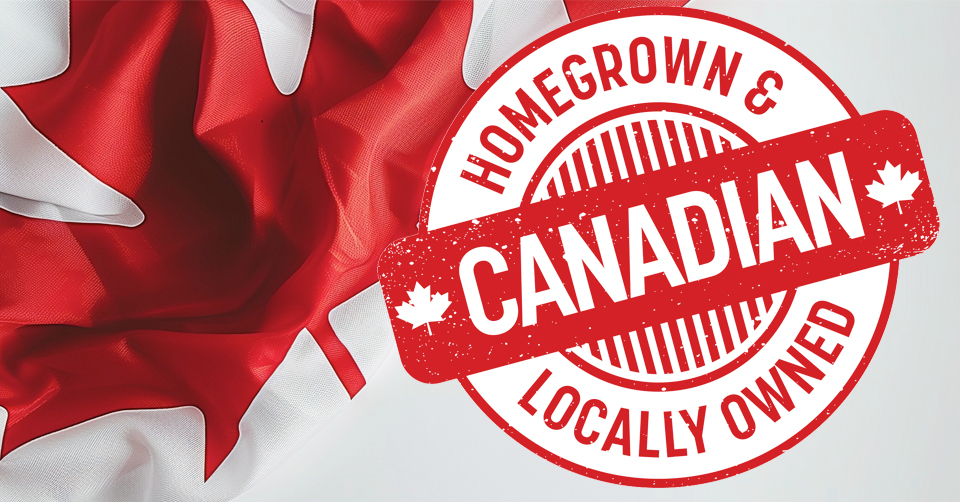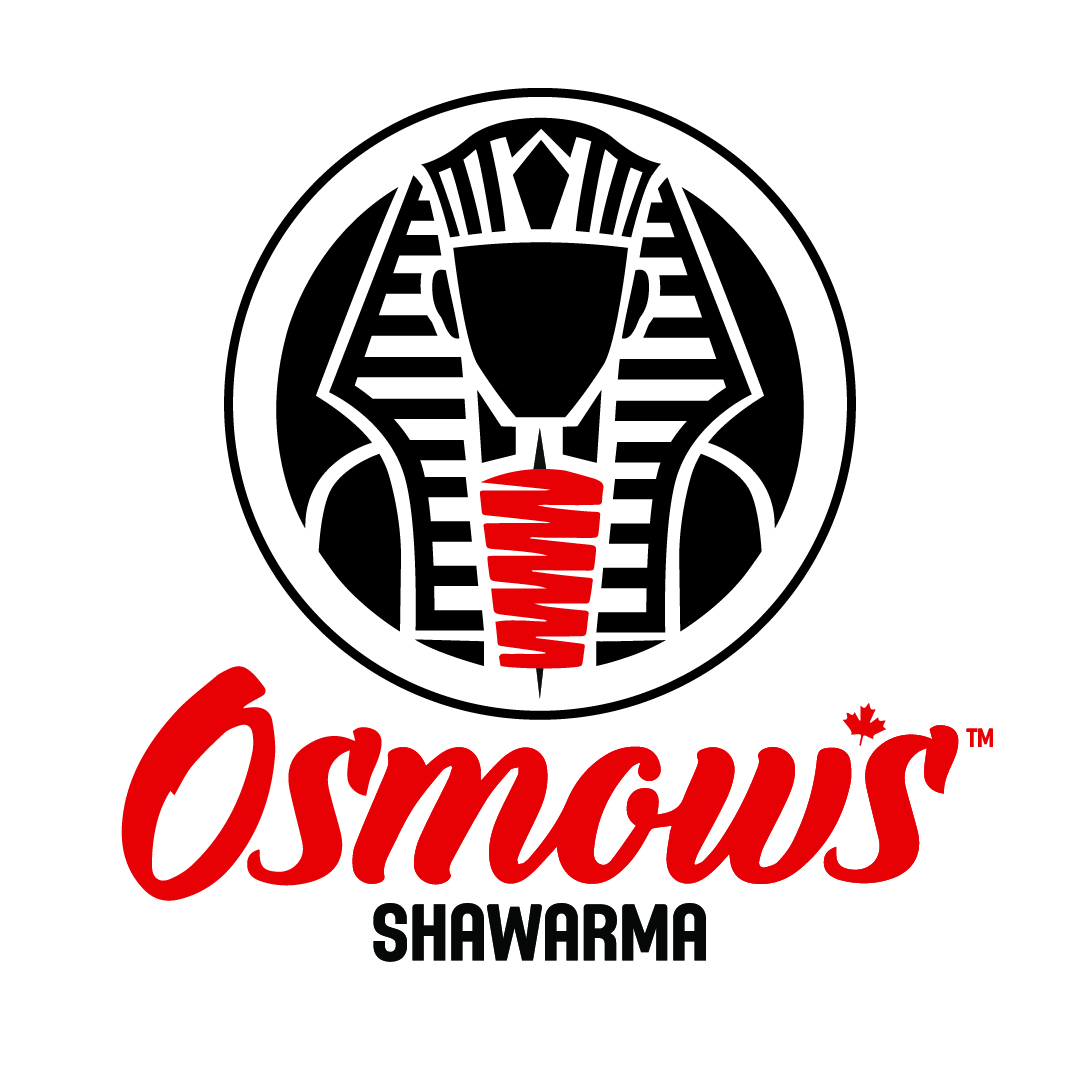By David Chilton Saggers
Health and wellness are ever more important parts of Canadians’ lives. Whether it’s improved diets, massage therapy, chiropractic treatment, or other such services, demand is growing, and this represents an excellent opportunity for potential investors.
Osmow’s Shawarma
More than 20 years ago, when Sam Osmow prepared a traditional Egyptian lunch at his sub shop, he unknowingly started something big for the Osmow family. Local people, intrigued by his meal, asked if they could try it. That’s when Sam Osmow, founder of Osmow’s Shawarma saw an opportunity beyond his sub shop in Streetsville, Ontario, and ventured on a new path.
In 2001 he decided to switch from subs to Middle Eastern and Mediterranean food, says his daughter Bernadette Osmow, president and chief marketing officer of the now 200-restaurant business. Everyone was against it, says Osmow, but Sam persevered, and that year sampled his new menu during Streetsville’s Bread & Honey Festival. The next day there was a line-up around the block, Osmow recalls from the head office in Mississauga, Ontario, and soon customers were asking for an Osmow’s Shawarma where they lived.
This success led to a restaurant in Mississauga, and in 2010, the first franchise location in Brampton, Ontario. But it was in 2017 when franchising really took off, claims Osmow, and now there are 194 locations in Canada and another six in the U.S. The system currently has 51 active franchise partners, many of them multi-unit franchisees who own up to 20 restaurants each.
Of course, a savvy business sense and an understanding of their market segment were crucial to Osmow’s Shawarma’s success, but so was the type of food it offered. With its use of lean protein, whole grains, legumes, and olive oil, the extensive practice of baking and grilling, and the avoidance of excessive salt and fat content, the system’s menu hits all of the right health food notes. Osmow’s owns its own plant where these ingredients are made specially and fresh from scratch, making for greater consistency and freshness system-wide. For those looking to enjoy these meals, lunch for two at Osmow’s Shawarma costs about $20.
Osmow says the brand caters to a wide segment of the market, with their main customer base evenly split between men and women, ages 18 to 56. “A lot of our customers grew with the brand,” she says. “And we have people who come in two to three times a week.”
For potential franchisees, Osmow says restaurant experience isn’t necessary, but drive, ambition, and a passion for the food are. Training takes two to three weeks at the corporate location in Mississauga. The cost of a franchise is around $450,000, and their restaurant size sweet spot is 1,400 square feet, preferably at street front.
The benefits of a franchise are numerous, says Osmow. “We’re family run and family involved. We take feedback from our customers and our team.” The system has the advantage of size as well, as it is the largest quick service shawarma restaurant in North America, with new locations opening in Saskatchewan and Newfoundland this year. Its digital footprint is also growing, with the introduction of a proprietary app for customer rewards and online ordering. But that’s not all: Osmow’s Shawarma doesn’t collect royalties from new franchisees for the first three months as they introduce healthy, quick service eating to their new customers.
Fork and Greens
Fork and Greens’ name speaks volumes, but it doesn’t tell the entire story. This quick service restaurant is a dynamic system based around healthy eating and built on freshly prepared vegetables, grains, and legumes. So, to see how this brand bloomed, let’s rewind back to 2012.
Joel Hector wanted to lose a significant amount of weight, so he attended the Pritikin Longevity Center in Florida. In just six months he lost 100 pounds, but a real estate career kept him on the road, and he found there were no healthy food options while travelling. His wife suggested he start his own salad restaurant, and he spent half a year studying the salad market in New York before opening what was then called Fork and Salad in Calgary, Alberta in 2016.
The restaurant was an instant success, says Hector, speaking from the brand’s head office in Calgary. That one store brought Hector many requests for franchise opportunities, and so, in 2024, he brought on his son, Maxwell Hector, to lead franchise development across Canada and the U.S. Franchise operations went live in January this year, when the system’s name officially changed to Fork and Greens, since the original name couldn’t be trademarked in the U.S. At the moment, Hector says he’s negotiating with eight potential franchisees and is looking at having 64 units open in the next five years. His principal market will be Alberta, followed by British Columbia and then Ontario.
When considering the qualities of potential investors, Hector says, “Principally, I’m looking for heart and soul and a commitment to the business.” Restaurant experience isn’t necessary, he continues, but enterprise-level business experience is because “we do massive volume.”
Training takes two weeks at his flagship store in Calgary. The cost of a franchise runs from $350,000 to $500,000, and high-density residential street front locations are preferred. Ideal locations are between 1,200 and 1,500 square feet and all have the same look and feel, whether they’re new or renovated spaces. Fork and Greens’ major customer demographics are men and women aged 22 to 44, and menu options average about $20.
One benefit of a Fork and Greens franchise is its simplicity, says Hector. “We bring in our vegetables. We wash them. We serve them. Just as nature intended.” Hector adds, “Ours is a fresh, pure concept of eating healthy and feeling full. I think that’s paramount. But that’s not all. We succeed by helping others succeed,” he explains, and notes the extensive system operations manual that, if followed to the letter, will drive that success.
Leela Eco Spa
When Gaurav Gupta first stepped into a spa in 2014, he had no intention of buying a business. Yet something about the energy of the space and the people in it sparked a vision. That moment of instinct became the foundation for Leela Eco Spa, a leading Canadian wellbeing brand with eleven locations, and more on the horizon.
Gupta bought Calgary, Alberta-based Leela in 2014 and his company expanded organically with eight corporate locations in that city. Two years ago he decided on a franchise model to spur faster growth. Now, he’s talking to potential franchisees, and he expects that the first Leela franchise to open will be in Ontario. The first corporate Leela location outside of Calgary opened in 2021 just outside Toronto in the suburb of Oakville. He’s also looking beyond Canada and he says interested parties in the U.S. have been in touch with him about expanding there.
For those interested in the franchise, Gupta’s looking for down-to-earth investors and good team players with strong customer service skills. “Just being money-oriented is definitely not the right mentality,” he says. Gupta himself came from a non-business background and previous spa or business experience for would-be franchisees is not mandatory.
A franchise costs $500,000 and training takes one to two weeks at the flagship locations in Calgary. Each location offers services such as massage therapy, waxing, esthetics, manicures and pedicures, and chiropractic treatments. Leela’s target customers are aged 25 to 45 and come from dual-income households whose members are “proactive about their health,” says Gupta. About 60 per cent of them are women.
Franchisees don’t need spa or business experience; what matters is alignment with Leela’s values of kindness, integrity, and operational excellence. “We’re ready to grow with the right people,” says Gupta.
Leela’s culture is what truly sets it apart, he adds. Therapists and staff are passionate about their craft, thriving in an environment where positivity and support are the norm.
“Our success is built on a culture where people love where they work, and that infectious positivity is something our clients sense and appreciate every visit,” Gupta explains.




